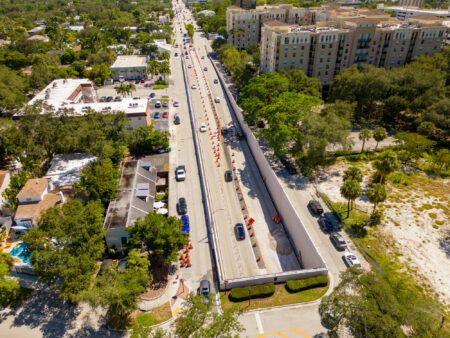The City of Portland in Oregon has launched its Traffic Sensor Safety Project, the first major milestone for Smart City PDX, the city’s effort to use data and technology to improve people’s lives.
Rather than starting with a technology and looking for reasons to use it, the Smart City PDX initiative is structured to first identify inequities and disparities in the city and then strategically apply data and technology to address those challenges.
A finalist in the US Department of Transportation’s (USDOT) 2016 Smart City Challenge, Portland has continued to expand its overall effort to use data and technology to increase safety, reduce inequities and improve the quality of life for its citizens.
As the first project under the Smart City PDX banner, the Traffic Safety Sensor Project will see the city install 200 of Current by GE’s CityIQ sensors, powered by Intel IoT technology, on SE Division, 122nd and SE Hawthorne, three of Portland’s most dangerous streets.
The sensors will provide the Portland Bureau of Transportation (PBOT) around-the-clock counts of vehicles and pedestrians, as well as information about vehicle speeds. With this new data, city traffic engineers can improve street safety design and support Portland’s Vision Zero goal of making the streets safe for all users.
The sensor project, which installed new mast arms and the CityIQ sensors on street light poles on the three corridors, has cost US$1m and was funded with general transportation revenue, system development charges, and contributions by the project’s private sector collaborators: Intel, telecoms operator AT&T, Current by GE (a division of General Electric), and Portland General Electric.
In addition to improved data insights, the CityIQ open platform is designed to handle future growth using the exact same street lighting infrastructure, so Portland can continue adapting and developing new applications that meet the specific needs of the city and its residents.
The data gathered from the sensors will be collected in the Portland Urban Data Lake (PUDL). Part of the overall Smart City PDX initiative, PUDL will collect, store, combine, and analyze data from a variety of sources including the Traffic Safety Sensor Pilot. The goal of PUDL is to provide a foundation for data-driven decision making, helping the City of Portland to harness the power of data to improve its services.
“Portland is leading the country in this important data effort,” said Mayor Ted Wheeler. “We are at the forefront of using advanced technology to make our cities safer for pedestrians, cyclists and drivers, helping people more easily get around, save time, and reduce the possibility of crashes. This pilot is a significant step in acquiring and utilizing data to make critical decisions.”
PBOT’s director, Leah Treat, noted, “Designing safe streets starts with good data. Until now, collecting this data was time and volunteer intensive. Now with these smart sensors, we can get real-time data about how Portlanders are using our streets. As a result, our traffic engineers will be smarter and Portlanders will be safer.”




